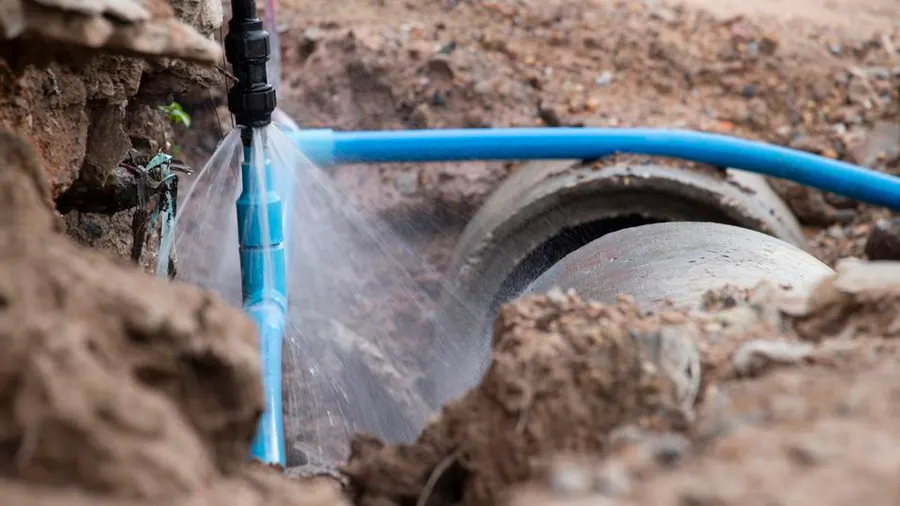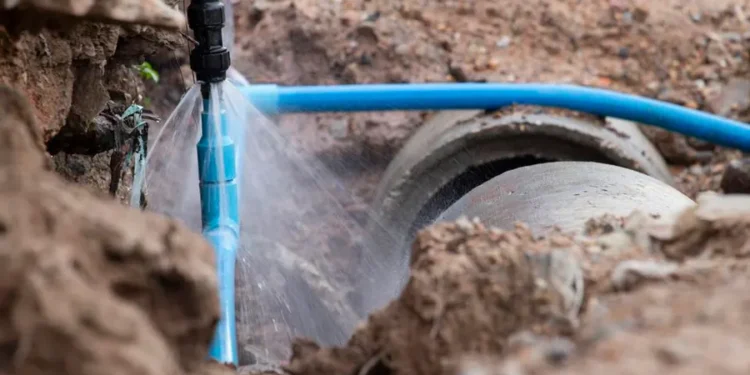Plumbing acts as the vital circulatory system of a house, supplying essential water, eliminating waste, and safeguarding the structure against damage. Drawing on this analogy further, the water pipes serve as the home’s principal arteries, stretching from the house to the main city water line. Ensuring these crucial conduits are in optimal condition, conform to current standards, and provide sufficient pressure is essential, which is why enlisting a seasoned Toronto plumber for an inspection is advisable.
However, in Toronto, this ideal scenario isn’t always a reality, especially given the city’s array of older homes. These properties often feature outdated half-inch main water pipes for water main installation, stretching from the street to the basement—significantly smaller than the modern 3/4” standard and, in some cases, made of lead, which introduces potential health hazards. Water service is divided into two segments: City and Private. Homeowners are tasked with the upkeep and enhancement of the private segment of their water service, including the option to initiate water main installation or upgrade requests, prompting the city to perform corresponding enhancements on their end.
Addressing Lead Pipe Concerns
Historically, lead was a common material for plumbing due to its malleability, so much so that the profession’s name derives from the Latin word for lead, “plumbum.” In Toronto alone, it’s estimated that upwards of 31,000 residences still harbor lead piping, particularly those with water service lines installed before the mid-1950s or pipes soldered prior to the 1990s.
The primary concern with lead pipes extends beyond functionality to the realm of health risks. Lead exposure is particularly hazardous, posing significant risks if used in systems supplying drinking water, especially to pregnant women and children. For those residing in older homes, corroding lead pipes may compromise water quality by leaching lead. To mitigate this risk, a plumber can inspect and, if necessary, replace lead pipes with safer alternatives like copper.
Ensuring Compliance with Current Plumbing Codes
Plumbing standards evolve, and current regulations require a one-family dwelling to have a water pipe with a minimum inside diameter of 3/4″ from the main water supply. Similarly, the pipe connecting the water meter to your home’s hot water system must also meet this size requirement. Old, narrower pipes can adversely affect water pressure, a situation boilers, reliant on incoming water pressure, are particularly sensitive to.
Many plumber services employ torpedo drilling, a method that facilitates the installation of 3/4” or 1” pipes while minimizing disruption to your property. This technique only necessitates two access points: one inside the basement near the existing main and another outside near the property line. This less invasive approach to ensuring your plumbing is up-to-date has garnered positive feedback for its efficiency and minimal impact.
For subterranean installations, plumbing services exclusively utilise type “K” copper, a soft temper copper ideally suited for below-ground applications. This preference mirrors the City of Toronto’s standards, which also favor long rolls of this copper type to allow seamless installation of the private water supply segment without necessitating joints. Furthermore, copper’s conductivity makes it valuable for electrical grounding, rendering plastic alternatives impractical for underground use.

Enhancing Water Pressure
Regardless of whether they’re made of lead or copper, 1/2” pipes simply don’t deliver adequate water pressure for a modern home. This is particularly true for residences equipped with multiple bathrooms, laundry machines, dishwashers, sprinklers, and other appliances that rely on a consistent and strong water flow. To meet these demands, upgrading to 3/4″ or 1″ pipes is essential for ensuring both the private and city-supplied water pressure is up to par.
Upon completing water main service enhancements in Toronto, homeowners are entitled to request a larger water meter from the city. This adjustment ensures meter readings are as precise as possible, given that the meter size must either match or be smaller than the connecting pipe for accurate measurement. Often, upgrading the private section of your water service is sufficient to significantly improve water pressure throughout your home, particularly when multiple water fixtures are in use simultaneously.
Safeguarding Your Basement
Beyond the advantages of enhanced water pressure, removing potential lead hazards, and adhering to current plumbing codes for the benefit of your home’s resale value, another important reason to replace your main water pipe is to protect your basement from flooding risks. Newer pipes are inherently more robust and capable of handling higher pressures and the occasional pressure fluctuation without failing.
Dealing with burst pipes can lead to serious damage, especially in the basement, making it wise to be proactive. Having a professional assess the condition and durability of your pipes before winter sets in is crucial, as colder temperatures increase the risk of older pipes bursting.
Summing Up
As a homeowner, you bear the responsibility for the upkeep of the private portion of your water system. Taking steps to upgrade your main water pipe not only mitigates health risks and enhances water pressure but also contributes to your property’s resale value and helps prevent potential basement flooding. Reach out to a professional to have your water service evaluated and determine if a pipe replacement is necessary. This preventive measure is not only cost-effective but also a safeguard against future inconveniences.





